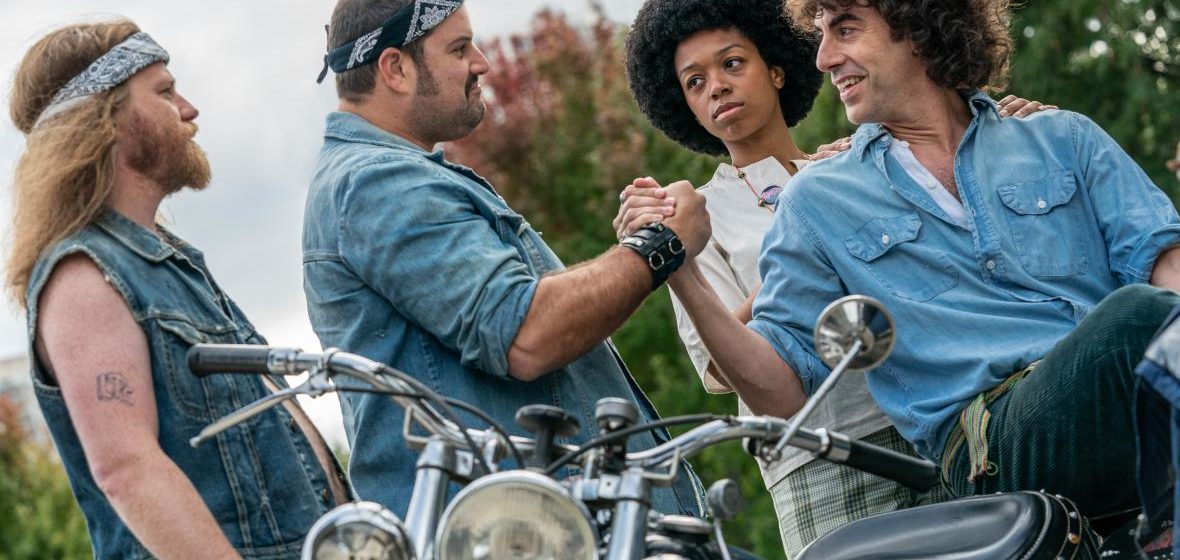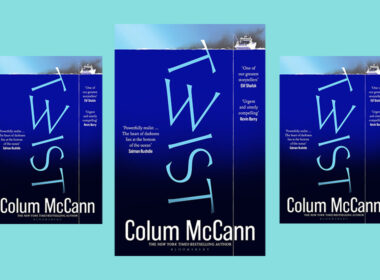Rating: ****
Halfway through Aaron Sorkin’s second directorial effort, the thought crossed my mind how different this story would’ve been today in the time of social media. Then a character walked past crying “the whole world is watching”, as if that could protect them from the cruel unfair hand of American justice. I realised not a lot has changed since 1969.
As it is today, it was then that the whole world watched with passive shock while injustice was perpetrated by the very people assigned to uphold it. Sorkin, ever the idealist, finds here the perfect film to make his style more topical than ever before.
The Chicago seven were really eight men charged by the Federal Government with inciting a riot during the Democratic National Convention of 1968. What started as an anti-Vietnam War protest, quickly escalated to violence, not too dissimilar to other events that happened this year. Nixon’s new Attorney General sees an opportunity to use these men as examples and ensure the authority of the police officers is not undermined by future protests. It’s a sound plan, except, as we know, “the whole world is watching.”
In classical Sorkin style, the frame of the plot is the trial, and from there he unspools, thread by thread, specific details of the day of the riots. He jumps back and forth from 1969 to 1968, highlighting the strength of the persecutors and the tactics the defence takes. But most importantly he uses it to hit on the same key since the start – that everyone, even the judge, is prepared to indict the eight men, justice be damned. “This is a political trial”, says one of the accused to his attorney played by Mark Rylance, a truth that is not revealed in the climax of the film but stated and underlined right from the start, and repeated over and over.
This is Sorkin at his most angry. Completely devoid of any subtlety, Sorkin tackles the film with the gusto of a revolutionary. He’s not here to be impartial and give us both sides of the coin. Finding himself in his original habitat, Sorkin makes the trial a series of tense and cleverly written sequences expected from the man who gave us Jack Nicholson shouting “you can’t handle the truth.” Say what you will about him: the man can write great courtroom drama.
Part of the complexity of the trial comes from how Sorkin deals with the morality of the case. On one hand, you have the defence, trying to keep their wits together as they increasingly realise they’re facing an impossible battle. Then there’s the prosecutor, played by a stoic and on form Joseph Gordon-Levitt, whose idealism for the rule of law is put to test even if it benefits. Finally the judge, a terrific Frank Langella, who hides his partisanship and agenda behind the status of his title. As a judge, Langella believes he is the law; as a young DA Gordon-Levitt believes in the universality of the law; and as a defence attorney Rylance knows his battle is lost from the start.
The cast is strong. Everyone plays Sorkin’s type of the clever patronising know-it-all without missing a beat, even if the accent of Sasha Baron Cohen and Eddie Redmayne isn’t up to the same level. A great note to Yahya Abdul-Mateen II who plays Bobby Seale, the Black Panther leader who is constantly denied a fair trial with no justification whatsoever. If you caught HBO’s Watchmen you may recognise him as the quiet husband Cal. It is not every day we see a star in the making in real-time, but he exhales so much personality in the little time he’s on-screen it’s not hard to imagine him headlining a feature soon.
Still, in the end, this is Sorkin’s show. His shortcomings as a filmmaker are there, especially evident when we’re so used to see his words brought to life by some of the best in the business, from Fincher to Boyle and Nichols. But knowing he still needs to improve as an artist, Sorkin uses other elements that he can bring to life on the page – the introduction montage, for example, is the kind of cinematic euphoria that could only have come from either a writer or Scorsese working with his editor-collaborator Thelma Schoonmaker. A moment so exhilarating, it’s sad that it comes right at the start and the rest of the film never really pulls off that same level of masterpiece. But it doesn’t stray too far away from it.
The Trial of the Chicago 7 is now showing in select cinemas and available on Netflix.




